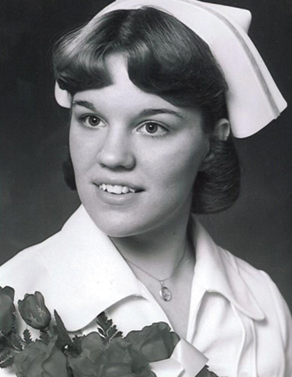Nurses among first responders to be treated for post-traumatic stress injuries at new facilities
Nurses face an environment filled with traumatic events and stress not unlike firefighters, paramedics, police. Officials will break ground for a new facility to treat first responders with post-traumatic stress injuries (PTSI) this spring – but it took much advocating to get nurses among those who will be treated.
Dianne Martin, WeRPN’s CEO, knows firsthand that nurses encounter traumatic situations every day on the job. This is why she lobbied the provincial government hard to recognize nurses as first responders.
Once a delivery room nurse herself, Martin can easily recall assisting in a birth that went horribly wrong. The mother barely survived and was moved to the ICU unit for weeks.
“We couldn’t save the baby,” she says. “I can’t even describe to you what happened in the operating room. It was something I still can’t get out of my head. Seeing her husband in the hallway, having crumbled on the floor. I had to bathe the baby, dress it, tuck a little teddy bear in its arm and take it to the dad who lost it.”
Martin takes a breath.
“I then had five minutes to compose myself, and then I had to go to the next room and help another woman deliver her baby – the happiest day of her life.”
While the event didn’t leave her with a PTSI that wouldn’t allow her to continue her work, it still brings her to tears when the memories flood back decades later.
Other nurses aren’t so lucky, she says. The pandemic has been more difficult on nurses. She thinks of one nurse, who stepped in to help in a long-term care facility in the early days of the pandemic when no one else would come to work.
“These people needed care, and this nurse put her hand up,” Martin says. The avalanche of suffering and death that she witnessed in that care centre was enough to cause a serious PTSI. Sadly, Martin adds, it’s also an injury that has kept this nurse, one of our best, from nursing since then.
The pandemic brought the difficult working conditions nurses face to light. But Martin says it took years for officials to see that – while nurses might not be “first on the scene” to a horrific crash, homicide or traumatic event – they witness the same kind of trauma as police, firefighters, paramedics and other first responders. Because of this, they deserve the same support, WeRPN advocates.
The kind of support soon available to nurses will be four new initiatives geared toward first responders in the form of two new facilities and new programs.
Toronto will be home to Station 3434, located at 3434 Dundas Street West. This centre is an nine-storey outpatient assessment and treatment facility offering programs to help first responders with wellness, back-to-work transitions, addiction and mental health.
Martin takes a breath.
“I then had five minutes to compose myself, and then I had to go to the next room and help another woman deliver her baby – the happiest day of her life.”
While the event didn’t leave her with a PTSI that wouldn’t allow her to continue her work, it still brings her to tears when the memories flood back decades later.
Other nurses aren’t so lucky, she says. The pandemic has been more difficult on nurses. She thinks of one nurse, who stepped in to help in a long-term care facility in the early days of the pandemic when no one else would come to work.
“These people needed care, and this nurse put her hand up,” Martin says. The avalanche of suffering and death that she witnessed in that care centre was enough to cause a serious PTSI. Sadly, Martin adds, it’s also an injury that has kept this nurse, one of our best, from nursing since then.
The pandemic brought the difficult working conditions nurses face to light. But Martin says it took years for officials to see that – while nurses might not be “first on the scene” to a horrific crash, homicide or traumatic event – they witness the same kind of trauma as police, firefighters, paramedics and other first responders. Because of this, they deserve the same support, WeRPN advocates.
The kind of support soon available to nurses will be four new initiatives geared toward first responders in the form of two new facilities and new programs.
Toronto will be home to Station 3434, located at 3434 Dundas Street West. This centre is an nine-storey outpatient assessment and treatment facility offering programs to help first responders with wellness, back-to-work transitions, addiction and mental health.


A second centre for first responders suffering from PTSI will be located on a 26-acre site in Peel. This 40-bed unit will provide inpatient mental health and addiction programs.
The goal is to break ground on this facility this spring. An additional virtual care piece will integrate digital programming for ongoing crisis support 24/7. The fourth pillar of these programs is research, helping these programs better understand and treat PTSI in first responders.
Designs for these facilities were developed with the help of nurses, firefighters, police and paramedics at the table making decisions – as well as government.
The plans for these facilities and services were driven by Connie Dejak, President and CEO of Runnymede Healthcare Centre. Her personal experience with PTSI led to her vision for this dedicated care centre for first responders.
Her husband is a firefighter. After 33 years on the job, he had what she describes as a critical incident.
“We realized as we started to branch out for support that there were a number of wonderful programs that existed, but certainly they were not all comprehensive or all encompassing,” she reflects.
In addition, none of the programs were geared to the experiences of first responders. As she started more research and advocated for specialized care in the area, she started to get calls from leadership from firefighters and police.
As she shared her vision with Premier Doug Ford, she wasn’t sure if it had resonated. On a sunny Sunday afternoon, Ford called her. Thinking it was a robocall, she didn’t realize the Premier was calling to support her goal.
The Premier had heard her. He would help her set up the first facilities and programs for front-line workers suffering from PTSIs.
Dejak’s point is that PTSI is not an injury that first responders came to work with.
“Firefighters, police, paramedics, nurses… they did not come to work like this,” Dejak explains. “This was on the job. It is a post-traumatic stress injury. So if it’s an injury, why are we dealing with this under the mental health umbrella? Why are we not dealing with it under the rehab umbrella?”
In looking at PTSI this way, Dejak says the stigma can be broken down.
WeRPN’s Martin agrees and says that recognizing that the environment nurses work in can cause PTSI will help remove the stigma that these injuries are a sign of weakness.
“All nurses will have something potential in their environment to cause a PTSI,” Martin says. “They will have traumas for sure. They always have the potential for trauma, particularly trauma that, for often unexplainable reasons, hits them in a manner that impacts their mental health so badly.”
“It can hit you in a way that debilitates you. And that is not a sign of weakness, and it’s not a sign of someone being stronger than another person. It’s just the day, the moment, the event in your background, like your whole sort of context, something can hit you in the wrong way, paralyzing you from moving forward and sometimes leading to a mental health issue that is life-altering.”
While nurses were not originally in the legislation as first responders, Dejak says this project helped them change the narrative to include nurses.
“They had never before considered nurses. But we knew clearly that they also needed services in a dedicated facility. Having worked in healthcare for over 30 years, I was not going to not include nurses as part of my catchment group,” Dejak says.
“As I started to talk to our stakeholders, nurses, physicians, police officers and firefighters, I heard that they did not want to receive treatment and go into a mental health facility or acute care hospital for whatever reason,” Dejak says. What they wanted was a specifically designated, purposely built facility.
“Anybody who has given their life or dedicated their life to this profession, whether it be nurse, fire, police, or paramedics, should at the very least have access to a publicly funded, world-class facility where they can obtain the right care at the right place at the right time.”
“That means they’re not put on a three-month waiting list, that they’re not waiting two weeks. It’s critical that they can get treatment immediately and that we ensure it’s not a fragmented piece of their journey; it’s a comprehensive, all-encompassing piece.”
Martin agrees that nurses and other first responders need specialized care.
Anybody who has given their life or dedicated their life to this profession, whether it be nurse and fire or police or paramedics, at the very least, should have access to a publicly funded, world-class facility where they can obtain the right care at the right place at the right time.
“People who care for patients require care in a slightly different way than the general population, so they won’t have to see the people they care for while they’re receiving care,” Martin says.
Runnymede’s Dejak echoes this sentiment when she says that having representatives of the people who will use the sites at the table means the programs will adapt as needs change.
“We want nurses. We want firefighters, police and paramedics at the table making decisions,” she explains.
“This way, it’s not just health care providers like a doctor or somebody who’s running a facility or the hospital CEO, but the actual users of the program involved. In this way, the program will continue to be viable and will continue to adapt to the needs of your stakeholders. And that’s what was critical for us.”
Dejak says she’d eventually like to expand the role of these programs to make them part of the system.
“In the province of Ontario, we do not have a back to-work program or services for nurses, firefighters, police or paramedics that is in a dedicated facility geared towards their needs. They don’t want to walk into a general acute care hospital. It’s where they work. It’s where police will bring people. It’s where firefighters see it in a different capacity. This is a facility that is dedicated to them and their families,” Dejak says.
The programs will also be offered to families of first responders. Deejack explains that the effects of PTSI can be significant. She points to the impacts on nurses and their families over the past few years during the pandemic.
“If your mom is a nurse, you might suffer fear and anxiety. I saw this in my own children. My two kids were always nervous, always concerned about their dad, the firefighter,” Deejack says.
“You can imagine how a teenager whose parent is a nurse, is reading these stories about COVID, the deaths in the ICUs… They don’t have the ability or the training to deal with this.
And maybe, you know, mom or dad is coming home, not able to discuss it.”
These children need an outlet, Dejak says. And that’s the goal of Station 3434.
The commitment to help front-line workers suffering PTSI is lifelong, Dejak says.
“I don’t care if you’re retired or on the job. They’re going to treat you there. There is a false belief that when first responders retire or they go off sick, it goes away. It doesn’t.
We owe them this help.” WeRPN’s Martin says that it’s fantastic nurses are offered treatment for PTSIs. She also hopes that work is done to change the environments they work in every day.
“Ultimately, we want them back. We want them healthy and back to work. But they must have treatment that acknowledges they will be traumatized again. It’s kind of unavoidable for nurses. And so how do we learn skills that will protect us in future situations?”
“These are great programs, but we need to fix our environment where we provide care and have immediate support for those experiencing PTSIs.”

